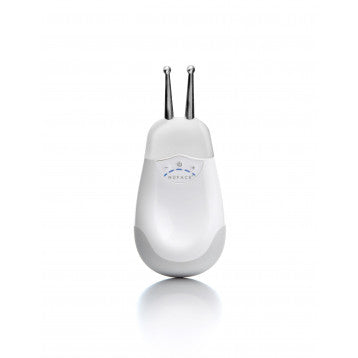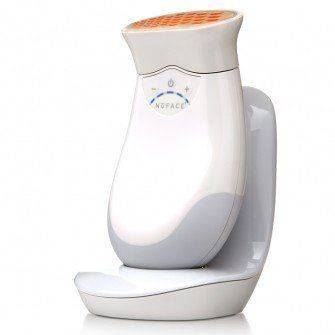
From the popular, multi-solution NuFACE Trinity to the petite and portable NuFACE mini, NuFACE’s innovative, FDA-cleared anti-ageing devices help improve your appearance, no matter your lifestyle or personal skin care needs. Trinity’s interchangeable treatment attachments offer multiple anti-ageing solutions with the ease and convenience of just one device. And with the compact, travel-friendly size of the mini, you can leave Trinity at home and take mini on-the-go, so you will never miss a microcurrent treatment.
What is the Difference Between the NuFACE Trinity and Mini?
Both the NuFACE mini and NuFACE Trinity deliver a low-level electrical current (microcurrent), which stimulates the skin to improve its appearance. The NuFACE Trinity is designed with interchangeable treatment attachments that offer multiple anti-aging solutions with the ease and convenience of just one device. NuFACE mini is a microcurrent-only device that is petite, portable and yet has the same power as the NuFACE Trinity, it does not allow for different head attachments like the Trinity. The interchangeable treatment attachments include the Ele head and the Wrinkle Reducer.

The Ele head:
- Provides targeted microcurrent therapy
- Rejuvenates skin around the eyes, forehead and mouth
- Visibly improves the appearance of crow's feet
The Wrinkle Reducer:
- Targets wrinkles and fine lines with a combination of amber, red and infrared light
- Reaches the lower levels of the dermis that anti-wrinkle creams cannot
- Leaves skin feeling smoother
- Reveals radiant, younger-looking skin
- Visibly reduces wrinkles around the eyes, mouth and forehead





